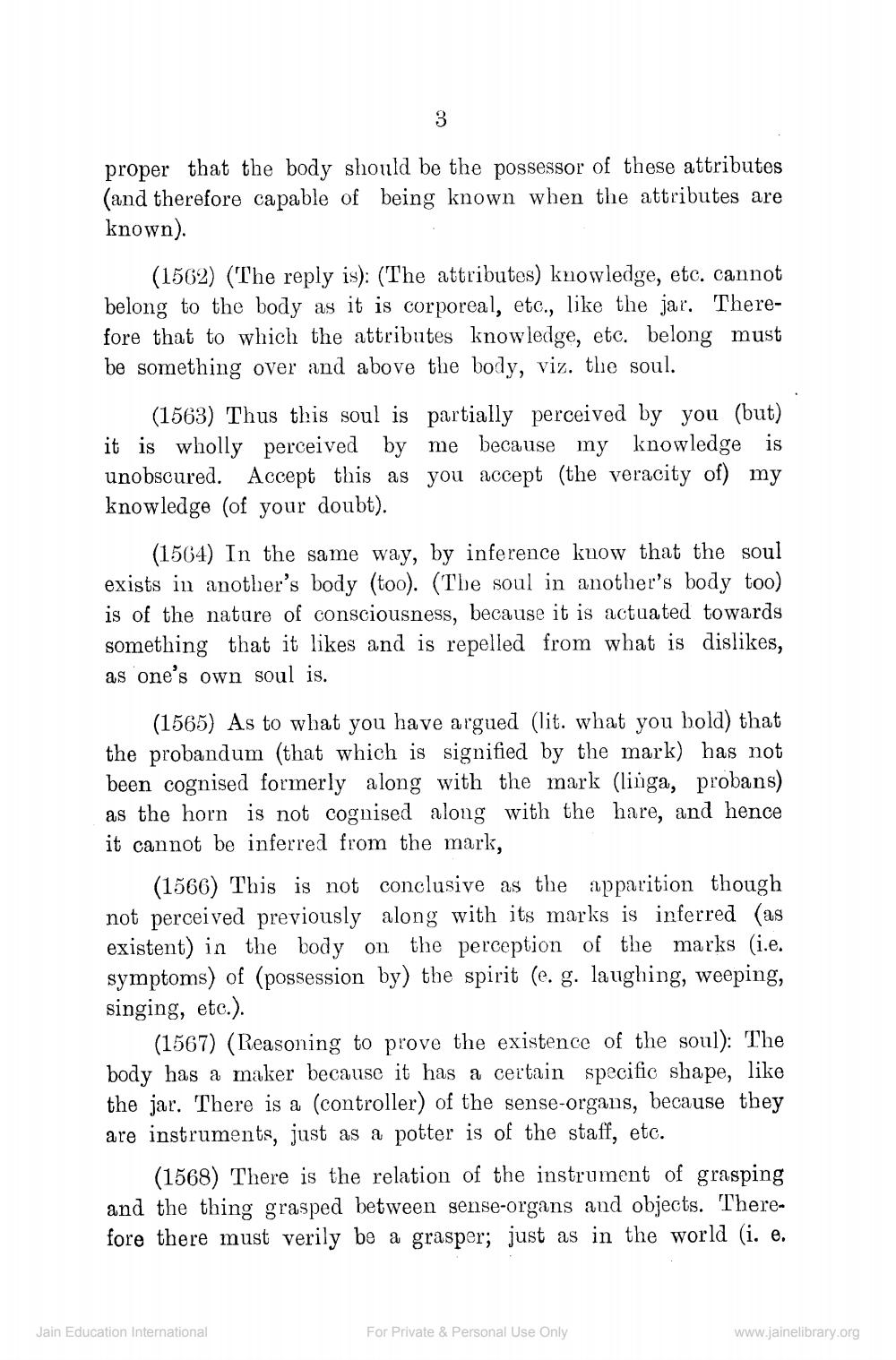________________
proper that the body should be the possessor of these attributes (and therefore capable of being known when the attributes are known).
(1562) (The reply is): (The attributes) knowledge, etc. cannot belong to the body as it is corporeal, etc., like the jar. Therefore that to which the attributes knowledge, etc. belong must be something over and above the body, viz. the soul.
(1563) Thus this soul is partially perceived by you (but) it is wholly perceived by me because my knowledge is unobscured. Accept this as you accept (the veracity of my knowledge (of your doubt).
(1564) In the same way, by inference kuow that the soul exists in another's body (too). (The soul in another's body too) is of the nature of consciousness, because it is actuated towards something that it likes and is repelled from what is dislikes, as one's own soul is.
(1565) As to what you have argued (lit. what you bola) that the probandum (that which is signified by the mark) has not been cognised formerly along with the mark (linga, probans) as the horn is not cognised along with the hare, and hence it cannot be inferred from the mark,
(1566) This is not conclusive as the apparition though not perceived previously along with its marks is inferred (as existent) in the body on the perception of the marks (i.e. symptoms) of (possession by) the spirit (e. g. laughing, weeping, singing, etc.).
(1567) (Reasoning to prove the existence of the soul): The body has a maker because it has a certain specific shape, like the jar. There is a (controller) of the sense-organs, because they are instruments, just as a potter is of the staff, etc.
(1568) There is the relation of the instrument of grasping and the thing grasped between sense-organs and objects. Therefore there must verily be a grasper; just as in the world (i. e.
Jain Education International
For Private & Personal Use Only
www.jainelibrary.org




